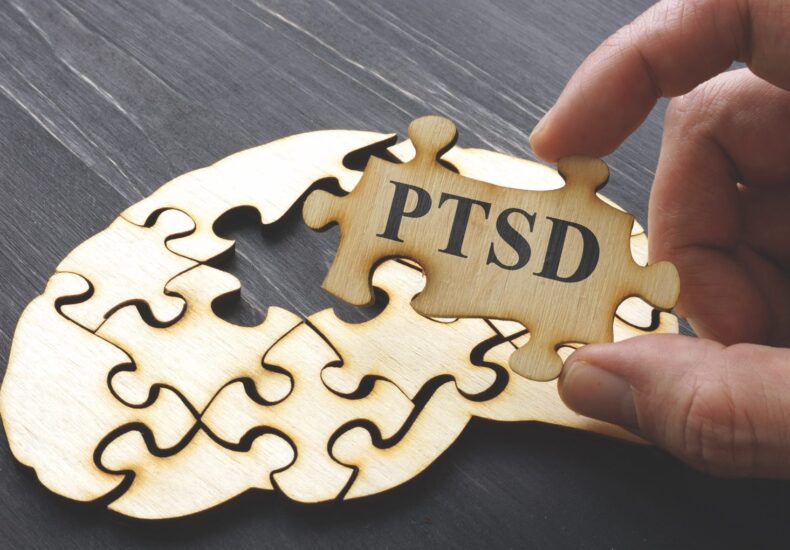Tag: gregg balbera
Caring for a veteran with PTSD: a family guide
Post-traumatic stress disorder (PTSD) is a mental health condition that can affect anyone who has experienced a traumatic event. For many veterans, especially those who served in combat zones, PTSD can be a lasting and deeply personal challenge. If you’re caring for a veteran with PTSD, you play a vital role in their healing and well-being-and your support can make a profound difference. Understand what PTSD is-and isn’t “PTSD is not a sign of weakness,” says Gregg Balbera, president of Right at Home Nassau Suffolk, a company that provides car to adults with disabilities and seniors. “It’s a natural response to traumatic experiences, such as combat, injury, or witnessing loss.” Symptoms can include: • Flashbacks or nightmares • Being easily startled • Emotional numbness or detachment • Irritability or angry outbursts • Trouble sleeping or concentrating • Avoiding reminders of trauma When your veteran loved one has PTSD, it affects the entire family. You may notice that they “act differently and get angry easily,” explains an article from the National Center for PTSD at the U. S. Department of Veterans Affairs (VA). “Your loved one may not want to do things you used to enjoy together.” Family members might feel angry about how PTSD is affecting family life or wonder if relationships will ever return to normal. These feelings are natural and expected. “Understanding that these symptoms are part of a medical condition-not personal behavior or choices-can help you strive for empathy instead of frustration,” adds Balbera. Getting professional help Whether your veteran “just returned from a deployment or [has] been home for 40 years, it’s never too late to get help for PTSD,” reads another article from the VA. PTSD is treatable, but it often requires professional support. Encourage your loved one to speak with a therapist or counselor who specializes in trauma or military mental health. Many veterans qualify for care through the VA, which offers a range of treatments, including mental health assessments, proven medications, psychotherapy (“talk therapy”), family therapy, and group therapy. Veterans who can’t easily access VA medical centers can receive counseling over the phone. Start with VA Mental Health Services at www. mentalhealth. va. gov, or call the Veterans Crisis Line (dial 988, then press 1), or text 838255. Learn to listen without judgment “Sometimes the best thing you can do is simply be there,” said Balbera. “Veterans may not always want to talk about what they’ve experienced, but when they do, it’s important to listen without interrupting or trying to ‘fix’ things. Create a safe, nonjudgmental space. Even if they aren’t ready to share, your presence matters.” Let them know you’re there for them and you’re not going to push them to talk, but that they don’t have to go through this alone. Create a calming environment Veterans with PTSD may be sensitive to loud noises, sudden changes, or crowded spaces. Consider: • Keeping the home quiet and predictable • Avoiding loud movies or startling sounds • Giving them space when they seem overwhelmed • Respecting their need for routines or downtime • Even small adjustments can help reduce stress and anxiety. Improving communication Better communication can strengthen your relationship with your veteran. The VA offers tips such as: •“Be clear and to the point.” •“Be positive. Blame and negative talk won’t help the situation.” • “Put your feelings into words. Your loved one may not know you are sad or frustrated unless you are clear about your feelings.” • “Don’t give advice unless you are asked.” If communication remains difficult, the VA recommends family therapy. Taking care of yourself The VA stresses that “helping someone with PTSD can be hard on you” and warns that “if you’re not careful, you may get sick yourself, become depressed, or burn out and stop helping your loved one.” Here are some ways to take care of yourself: • Set healthy boundaries. • Connect with a support group • Get enough sleep, exercise and downtime. • Don’t be afraid to ask for help. • Know the warning signs of a crisis If your loved one talks about feeling hopeless, harming themselves, or withdrawing completely from life, it’s essential to take action. Don’t wait. Call the Veterans Crisis Line at 988 (press 1) or call 911 and mention that the person is a veteran experiencing a mental health crisis. Getting started with VA services If you haven’t already, visit www. ptsd. va. gov for resources, self-assessment tools, and links to local VA services.
 The New York Times
The New York Times
- Wide Swath of the U.S. Faces Days of Severe Weather 2026 年 3 月 4 日 Nazaneen Ghaffar
- U.S. Submarine Torpedoed Iranian Warship Off Sri Lanka as Conflict Widens 2026 年 3 月 4 日 Pamodi Waravita, Anupreeta Das and Lynsey Chutel
- High Turnout, Unusual Coalitions: Lessons From the Texas Primary 2026 年 3 月 4 日 Nate Cohn
- TerraPower Nuclear Reactor in Wyoming Gets Federal Permit 2026 年 3 月 4 日 Brad Plumer
- Rhode Island Priests Sexually Abused Hundreds of Children, Report Finds 2026 年 3 月 4 日 Jenna Russell
- John Cornyn’s Biggest Challenges as Republican Senate Primary Heads for Runoff in Texas 2026 年 3 月 4 日 Carl Hulse
- Trump Justice Dept. Seeks to Stall State Bar Discipline of Its Lawyers 2026 年 3 月 4 日 Devlin Barrett and Jonah E. Bromwich
- Lawmakers Question Intel’s Use of Tools From Blacklisted Chinese Firm 2026 年 3 月 4 日 Tripp Mickle
- Sea Levels Are Already Higher Than Many Scientists Think, New Study Shows 2026 年 3 月 4 日 Sachi Kitajima Mulkey and Mira Rojanasakul
- The Fantasy of a Comfy Retirement Has Always Been a Mirage 2026 年 3 月 4 日 Jessica Grose
